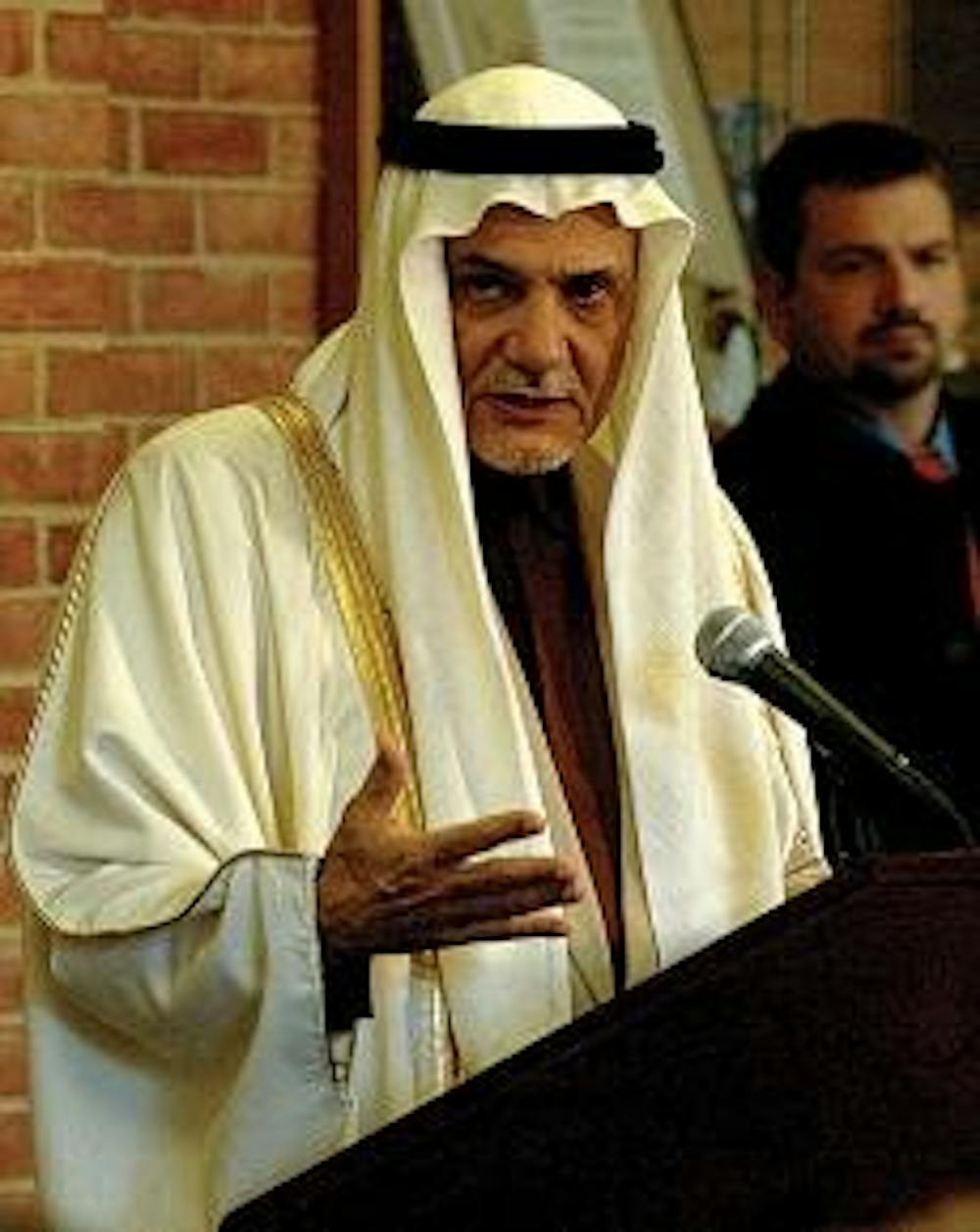Understanding and tolerance of one another as human beings is key to maintaining good relationships between the United States and Saudi Arabia, according to Turki-Al-Faisal, ambassador of the Kingdom of Saudi Arabia.
"We need you to come to our part of the world ... and open your minds," Al-Faisal said in the speech he gave on Friday, Jan. 19.
Al-Faisal spoke on U.S.-Saudi relations, Saudi education and his country's condemnation of terrorism to about 125 people in the School of International Service lounge. Al-Faisal's speech also addressed the durable friendship between the United States and Saudi Arabia.
"Saudis have always been your friends ... and as Saudi Arabia has changed a great deal, our friendship has not," he said.
Al-Faisal added that Saudi Arabia needs friends to face its challenges. He also emphasized the necessity of tolerance and keeping an open mind regarding the U.S.-Saudi relationship.
Saudi Arabia is similar to the United States in that Saudis believe in faith, family, peace and prosperity and want the same things for their children, he said.
Al-Faisal said there are two things the world needs to understand about Islam. The first is that Muslims are peaceful and those who use Islam to justify violence are wrong. In addition, the Muslim world must deal with "bigots" in the West who denounce and despise Islam.
The Saudi people are "absolutely not" extremists, Al-Faisal said. He added that Muslims are tolerant of others beliefs.
Al-Faisal said his country denounces terrorism. He said the lesson learned from this is that everyone "should respect that people as individuals are empowered as never before ... and we need to recognize this can go both ways."
"We are tired of the loud voices of radicals and extremists over powering moderate voices of Muslims throughout the world," Al-Faisal said.
According to Al-Faisal, the two sources of extremism are political grievances and poverty. Political grievances create and are used as excuses to further aim and collect support for extremism and terrorism. Poverty makes people more accessible when they are approached to join extremist organizations.
Al-Faisal also touched on education issues, saying Saudi King Abdullah Bin-Abd-al-Aziz Al Saud recognizes that education is key and has thus modernized the Saudi education system.
"When people become better educated they become more understanding of others," Al-Faisal said.
Nathan Marks, a freshman in the School of International Service, said he enjoyed the event.
"I thought the ambassador's call for more of an exchange between the United States and Saudi Arabia was one main point of the speech, and I can definitely see the need for an increased dialogue for our two nations," Marks said.
Elly Bennett, a freshman in SIS, said both the speech and questions were not specific enough.
"The speech was good but very vague," Bennett said. "He mentioned grandiose ideas but no specifics. He called for reforms but didn't say anything but that there are reforms"





